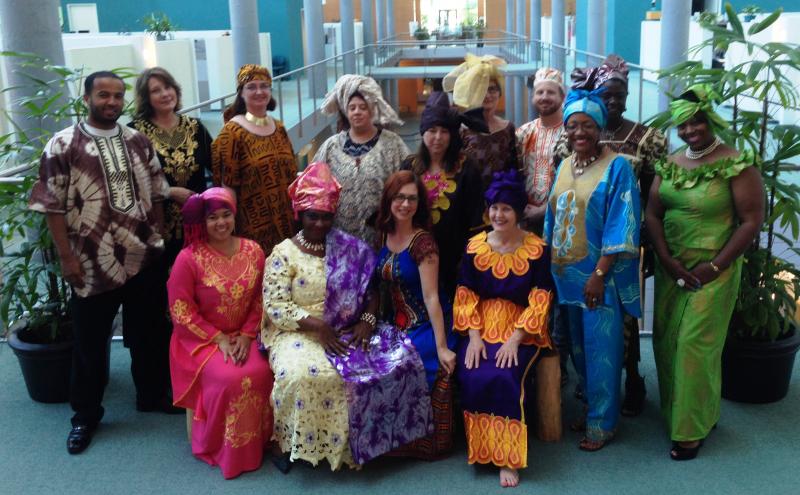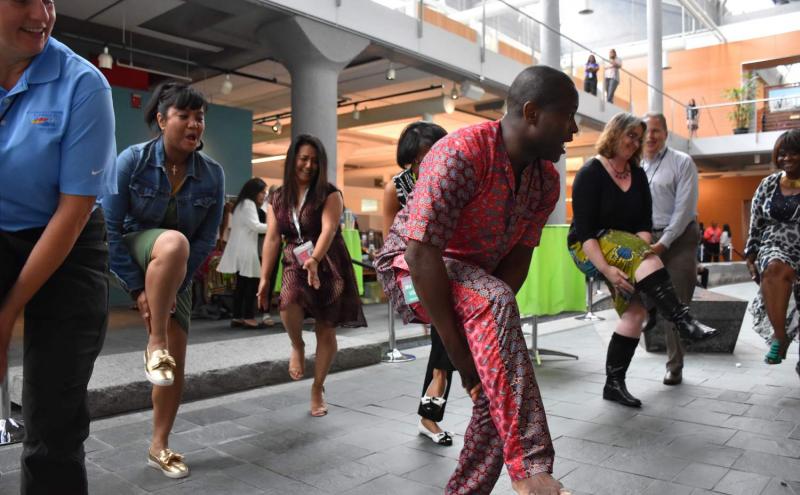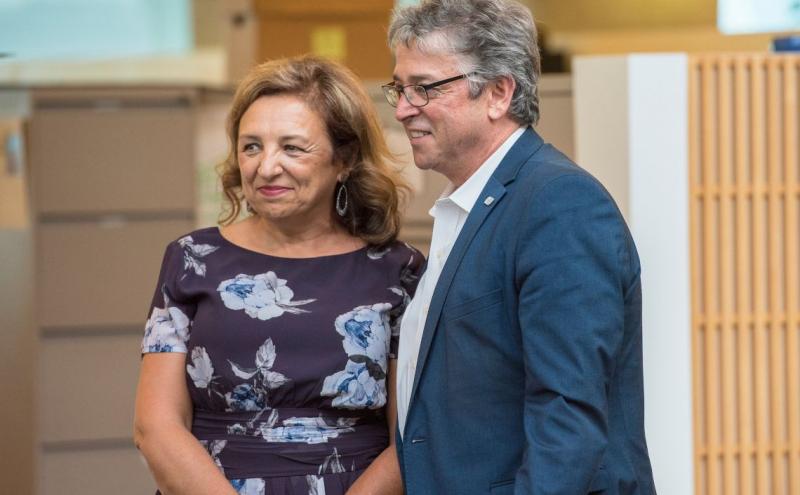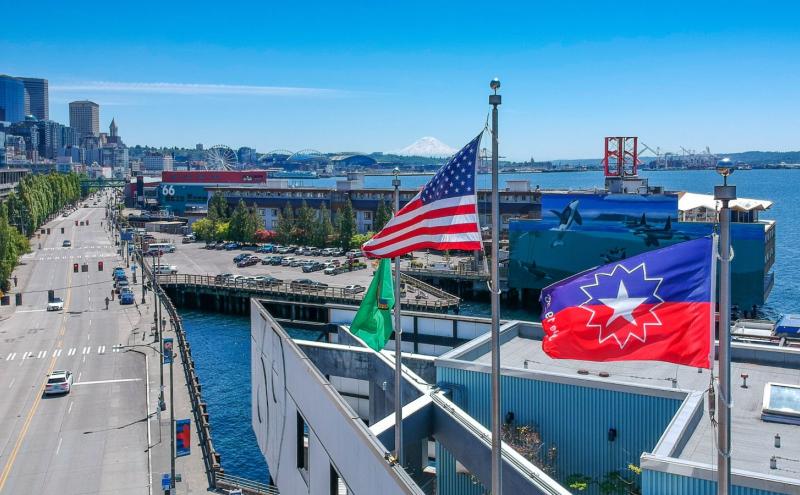
By the Office of Equity, Diversity, and Inclusion; and Blacks in Government, Port of Seattle Chapter
This blog represents a panel of Port employees discussing "Black Excellence: Up from Slavery and Doing our Ancestors Proud" to recognize Juneteenth 2021.
Panelists:
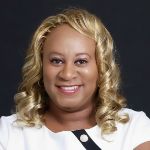 |
Tamaka Thornton Disadvantaged Business Enterprise (DBE) Program Manager |
 |
Tanisha Delgardo Resident Engineer |
 |
Amira Beasley Contract Administrator |
African-American history is American history. And throughout this history, there have been pivotal and everyday moments filled with Black Excellence. Moments where Black Americans stood up, took a stand, and paid it forward to future generations.
Black Excellence means someone who is Black who portrays great qualities and abilities that make the Black community proud.
Q1: What does Black Excellence mean to you?
Thornton:
I wanted to come to the Port and transition to the public sector because I’m committed to women, diversity, and inclusion. My passion is contracting and finding opportunities for disadvantaged business enterprises, women, and minorities.Delgardo:
I’m in engineering construction management. I came over from another construction company and saw an opportunity at the Port. I have not had any regrets.
Beasley:
I came to the Port because I wanted to work on more impactful projects. I wanted to make an impact on the community I live in. Before I came, I saw inspiring projects like the renaming of the Port parks to reflect their heritage and history. In this job, I definitely feel like I’m making an impact on neighboring communities.
Q2: Who models black excellence for you in the Port, the community, and your family? And we can lift them up. Excellence is a place to start.
Beasley:
I don’t think of perfection. There are many ways to be successful. One big part is displaying qualities that will make our community proud. We all identify with resilience. Waking up, going to work, getting a high school diploma and GED no matter how long it takes. And to be able to come into the workplace and thrive despite things that are consistently working again you.Thornton:
For us as a people, besides being resilient, we are able to adapt. Part of being excellent is not being perfect but being able to adapt. Like earning a diploma while working, or going to college and working. Parenting and being the parent that I want to show my kids that I can work, take care of family, and get an education. Black Excellence is always striving to get to a better level and striving to be proud in your community.
Delgardo:
The beauty of it is like art; everybody has their own version and take on it. In some ways we are similar but also unique. Uniqueness summarizes black excellence.
Q3: In what ways do you bring Black Excellence to your work at the Port? How does it show through the work that you do at the Port of Seattle?
Beasley:
By opening the doors to others. Working with program managers to find consultants. Trying to open the door to black or women-owned firms. It’s great for the Port to have diverse thoughts and ways. And giving opportunities to disadvantaged firms.Thornton:
I have not been at the Port for very long. I’m so happy that I chose to come to the public sector and especially the Port because it has allowed me to see that public agency leaders truly care and allow for space for you to be yourself and show an extended version of yourself. The Port is diverse in people and also in thought. The agenda to increase women and minority businesses. It’s not only my job. I love my job so it does not away feel like work. It gives me a chance to be the best version of myself, meet other people, and gain appreciation and respect for those who don’t have the same knowledge and general thought pattern. Appreciate, educate, and consider what else can we all bring to the table so we can all get to a better place. That is what allows me to be the best version of myself and demonstrate Black Excellence.Delgardo:
I learned about Blacks in Government (BIG) about six years ago, but it took me a while and some support to join. Other things were coming up. I finally joined and have learned and evolved incredible relationships. Recently having conversations in our groups and I’m proud to say our construction management team has been allowed an opportunity to talk about many variety of topics like Black Lives Matter. It started last year after George Floyd’s murder with lots of emotion. Starting conversations from scratch within our group is something I’m proud and honored to be a part of. I have to acknowledge my leaders because it would not have happened if they had not encouraged and allowed it to happen.
Q4: What are the top two or three things that come to your mind when you think about Black Excellence? And who planted the seeds in your mind?
Thornton:
I think about pride as well as education. As I’m looking from past to present to future, we have a huge amount of pride as a Black community. I have pride in the fact that I’m proud to be Black. I bring my authentic self every day. Looking to the future, I want to tell people that “you come from heritage that is rich, regardless of the circumstance of how we got here. Your heritage and your ancestors are truly rich in their collective souls and stories. And the lives that have intertwined to get here.”I think of education. None of us would be able to be on this platform and tell stories if not for education.
My church, my parents and my third grade teacher, Ms. Ruth Reese (who is 92 years old), instilled the following in me: Speak. Have a voice. Be heard. Show pride in who you are, where you came from, and reach back.
How are we getting here and where are we going? For me, it’s education and pride.
Delgardo:
My top two are pride and resilience. They’re the top two things that stand out and I feel it in my heart.I think about the past and my ancestors. Those that paved the way for me and how they overcame so much.
About the present — where we are as a black culture. I think about this platform and how it allows women of color to talk about their true feelings and meanings. It has not always been this way.
For the future, about what message or impact will I leave behind for my kids, my grandkids, and their kids?
In the Black culture, there is a sense of pride. Look up the definition of resilience and it shows what we have accomplished and achieved and have had to overcome. And that’s very important and important to me.
Beasley:
Resilience — it’s important to come back and work at your goals no matter what comes at you.Adaptability is really important.
People who have shown these qualities; my mom is my role model at the top of my list. I have accomplished things that she did not and through it she was there supporting me.
Q5: We are living in a time our ancestors could not imagine. What do you think makes the black community proud of you?
Delgardo:
My family and my children. Raising three kids as a single mother in this society and this world is challenging. I’m proud to say I have three college graduates who can contribute and make an impact in this world. One is a juvenile corrections officer making major impacts in the lives of African-American boys. It took me pushing them to get their education, helping them stay on the right path along the way. It’s a good history and foundation for them to come back and give back to their communityThornton:
I would say thank you for your sacrifices, thank you for your faith. For me faith is a central part of my life. Knowing all the things that my ancestors had to endure for my mother — my mother was born in the late 1930s and did not have all the options. I would tell them thank you, I appreciate, I am grateful for the path that they laid.For example, W. E. B. Du Bois who started the NAACP. Starting that org at the time that he did laid the groundwork for us to have the first African-America president. In this day and time to show appreciation and let them know the impact they had on myself and others I’m definitely paying it forward. Knowing I am in a position to give back and serve. That also means mentoring — you truly can impact children for their future if you do that. Take the time to listen.
Beasley:
My ancestors and community would be proud of my education and where I am in my career. Proud of how I have mentored people I have met along the way. Like my 13 year old niece who’s obsessed with anime. People put me in a box and say “you can’t be interested in that because it’s weird that a black person is interested.” There are still a lot of verticals where we have not had a “first Black.” If we don’t encourage kids to see themselves in spaces we are not going to get there.
Q6: Thinking about what you do to form a legacy. And what is the significance of your actions to honor your ancestors?
Thornton:
Mentorship. I’ve been doing it for the last 15 years. People said “You have a degree, you are smart, and you will help these kids get to the next level.” The kids ran circles around me in the math department. They did not have the support system. From there, I spearheaded a program and wanted to help anyone I could. I took them under my wing, started doing GED tutoring, and got involved in other organizations. All of the kids in the initial class are wonderful citizens. Two gentlemen went to community college and got a degree. One is a supervisor for Pepsi. Mentoring provides impact in a positive way. I am truly paying it forward to contribute my education that I was afforded and help those reach their educational goals even if it is a different path through GED then high school.
Q7: In what ways do you promote the uplift and the progress of the Black community?
Delgardo:
I have a son, 27, and twin girls, 23. I’m totally committed to being a parent and whatever that took. When there are many challenges, you made an adjustment along the way. They got involved, knew the important of who they were and where they came from, and have a positive path to the future. Their future can be different. I supported their education and their having many opportunities like traveling, joining cubs, or participating in sports. We stayed active in the community.I started and became the director of Pretty Girls through church. It’s a group geared towards girls ages 9-12 that allowed girls to see the beauty in themselves. It gave them mentorship and allowed them to work with confidence. And provided them the opportunity to feel good about themselves before they get into the teenage years. It starts early and instills at an early age the foundation of principles, morals, and a sense of who they are. And helps them move into the teenage, middle school, and high school years. I take pride in this and developing proud young ladies and women of excellence.
Beasley:
I support my community by giving my time. When I was applying for college and FAFSA, I was the first of my Mom’s kids to go to college. My mom told me “I don’t know how to do this, but we will get through it together.” I honor that spirit.When my sister was creating her business, I said to her “I don’t know how to do this, but I’m here with you and we will get through it together.”
Any time anyone asks for help, I am there to volunteer. I may not have the technical skills to help, but I will be there for them emotionally. Many have done that for me and I’m here to give support to others.
Q8: You are a time traveler and go back to the South in the 1860s and slavery times. Imagine that you can have a conversation with your slave ancestors. You are thankful and appreciative for their sacrifices so you could be free. What are some things you would say to them?
Thornton:
Persevere. Continue to love. Continue to fight — fight not in the physical sense but in the emotional, the social. Even in slave time, there still was a point where slaves were able to fight to get to a better place. To not be in the fields all the time, to have a day off, to celebrate marriage. Continue to do all of those things but definitely keep the faith. Definitely love. Because both of those things would resonate at that time and through history.Beasley:
You won’t be forgotten and you will be able to do things through the legacy created by future generations. I can’t imagine how crushing it was to be born into slavery and die in slavery and not be able to do what you want. Marry who you want, to read, to travel. I would tell them that you were not able to accomplish this but there will be generations who will be able to. And they’re thinking of you and will have you there with them in that moment.
Delgardo:
You won’t be forgotten. We will continue to fight along with them.

